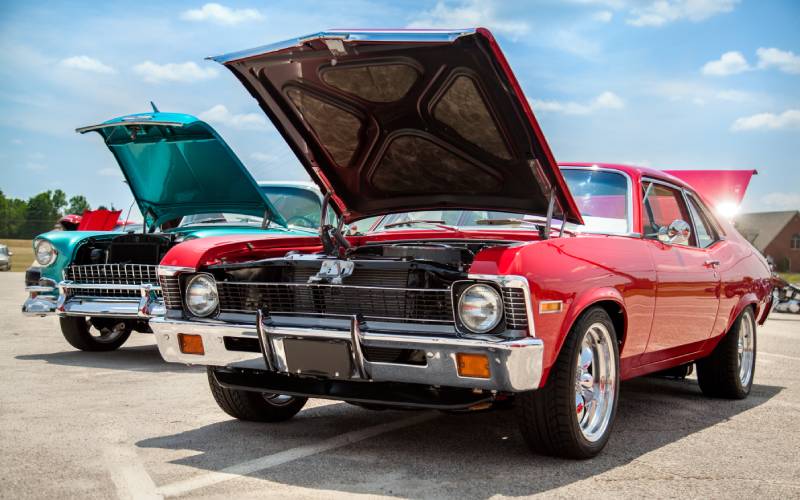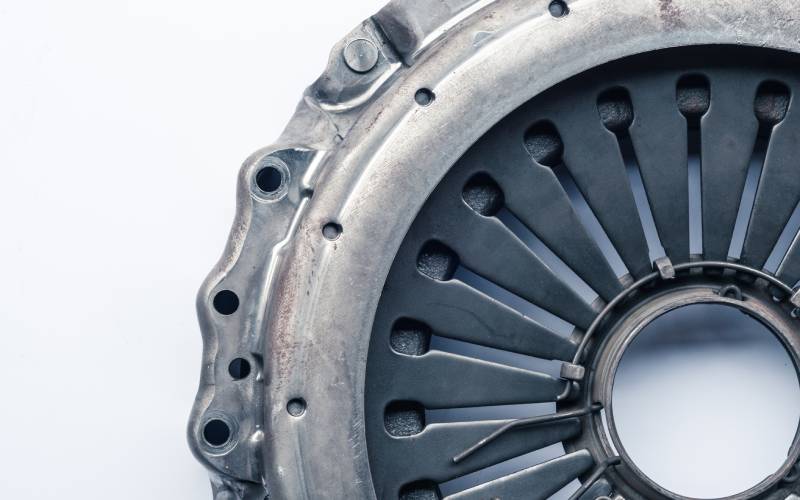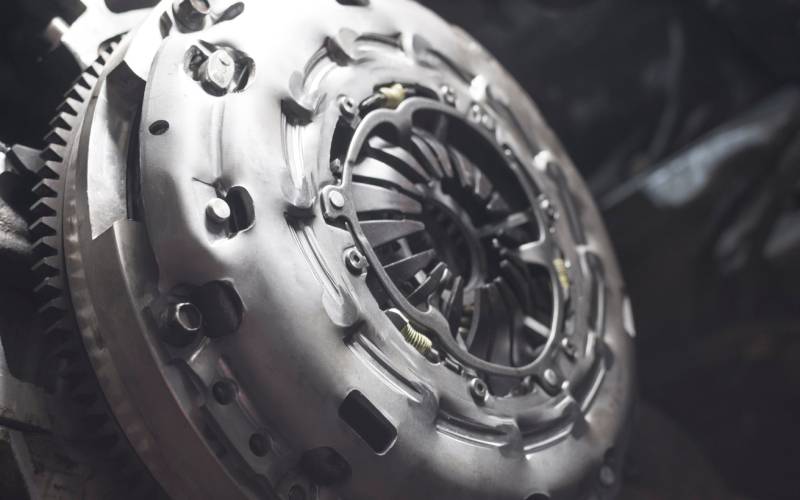Ultimate Guide to Choosing a Flywheel for Your Muscle Car

Few things are more exhilarating than getting behind the wheel of a classic muscle car that’s still in quality condition. But one of the most important aspects of a well-functioning vintage muscle car is the clutch and flywheel.
In many instances, it’s in the car owner’s best interests to upgrade the stock or old flywheel with a new, high-performance one. If you’re interested, our ultimate guide will break down everything you need to know to choose the ideal flywheel for your muscle car.
Introduction to Flywheels
Before we get into the nitty gritty of flywheels for muscle cars, let’s review the basics of these integral components. A flywheel attaches to the crankshaft to store rotational energy and smooth out power delivery from the engine to the transmission.
This disc-shaped component ensures efficient and consistent power transmission, reducing vibrations and enhancing performance, which is vital for cars where power and speed are key. A reliable flywheel optimizes acceleration and torque, supporting the engine to meet high-performance demands.
Benefits of Upgrading Your Muscle Car's Flywheel
When it comes to classic muscle cars, the more original the parts and components are, the better. However, there are still many benefits of upgrading to a high-performance aftermarket flywheel for your vehicle.

Enhanced Power and Torque
Upgrading your muscle car’s flywheel enhances the car's power and torque performance. By reducing rotational mass, a lightweight flywheel can increase engine responsiveness, allowing for quicker acceleration and improved throttle response.
This translates into a more exhilarating driving experience, particularly in performance scenarios. With the right flywheel, you can unleash your classic engine's full potential.
Smoother Shifting and Driving Comfort
One of the most noticeable improvements you’ll see after a flywheel upgrade is a smoother shifting experience. A high-performance flywheel reduces drivetrain vibrations and helps manage engine speed changes more effectively during gear shifts.
This makes driving much more comfortable for the driver, as the muscle car will feel more connected and easier to control. Whether you’re cruising or maneuvering through traffic, the smooth shifting makes your drive more enjoyable and lessens the wear on your transmission.
Increased Fuel Efficiency
Another benefit to upgrading the flywheel of your car is an improvement in efficiency. Efficiency isn’t typically a main concern for muscle car owners, but it doesn’t hurt either!
A lightweight flywheel minimizes the load on the engine during acceleration and maintains efficient power delivery across various speeds. This efficiency reduces fuel consumption, as the engine can achieve more with less effort.
Types of Flywheels
If you’re convinced of the benefits of a new flywheel for your muscle car, you’ll need to understand the different types of flywheels, including the differences in materials and weight.
Steel Flywheels
Steel flywheels are the go-to choice for many enthusiasts. They offer durability and are suitable for various driving conditions. Steel flywheels can handle the heat generated during aggressive driving, making them a reliable choice for muscle car owners.
Aluminum Flywheels
Aluminum flywheels, on the other hand, are much lighter. These flywheels are ideal for those seeking improved acceleration and throttle response.
The reduced weight allows the engine to rev faster, making it a favorite among racers. However, aluminum flywheels are not as durable as their steel counterparts, so they are best for specific performance needs.
Single-Mass Lightweight Flywheels
Another option when it comes to flywheels is a dual-mass or single-mass structure. Single-mass lightweight flywheels offer an advantage for classic muscle cars by maximizing performance. These flywheels prioritize reducing rotational mass for quicker engine response. The primary benefit of this reduction is greater acceleration, allowing for more immediate power delivery and faster throttle response.
Single-mass flywheels simplify the transmission system with fewer components than their dual-mass counterparts. Despite an increase in engine vibration during idle, the trade-off is worth it for muscle car aficionados who prize unrivaled agility and a raw, unfiltered driving experience.
Dual-Mass Flywheels
Dual-mass flywheels are a relatively new engine technology for cars, so they don’t fit the original engines of classic muscle cars. But if you’ve swapped the engine of your muscle car with a newer one to complement a more modern transmission, you could also consider upgrading with a dual-mass flywheel.
Dual-mass flywheels provide comfort and performance by effectively isolating engine vibrations from the driveline. Comprised of two separate mass components connected by a series of springs, these flywheels absorb torsional vibrations and shocks, leading to a smoother ride. They are best for high-torque applications where minimizing vibrations is crucial to prevent excessive wear and enhance driving comfort.
Factors To Consider When Choosing a Flywheel
When choosing a flywheel for your muscle car, there are many factors to consider. Our ultimate guide will explain the key considerations when weighing flywheel options.

Weight
When choosing a flywheel, one of the most crucial factors to consider is weight. Lighter flywheels offer quicker acceleration but may lead to reduced low-end torque. In contrast, heavier flywheels provide better torque but can slow down acceleration. Striking a balance based on your driving preferences and needs is essential.
Material Choices
Material is another critical aspect to consider. Steel flywheels provide durability, while aluminum models offer less rotational mass. It's important to assess your driving style and the intended use of your muscle car when making this decision.
Compatibility With Engine and Transmission
Ensuring compatibility with your car's engine and transmission is vital. The flywheel you choose should work seamlessly with your car's make and model to avoid any performance issues or mechanical problems.
A mismatched flywheel can lead to inefficient engine operation, increased wear and tear, and damage to your transmission. Researching and choosing the right component is crucial for maintaining optimal vehicle performance.
Intended Use of the Muscle Car
When selecting a flywheel, consider the intended use of your muscle car. If you primarily use it for competitive racing, an aluminum flywheel is best due to its lightweight nature, which allows for quicker acceleration and improved performance.
However, if your muscle car serves as a daily driver, a steel flywheel is more suitable. These materials provide durability, better low-end torque, and a smoother driving experience.
Flywheel Maintenance Tips
After selecting and installing your muscle car’s new flywheel, you have to take precautions ensure it works effectively for its intended lifespan.
Inspect and Clean Regularly
Maintaining a flywheel involves scheduling routine inspections to identify and address any signs of wear or damage. For classic muscle cars, the flywheel can be subject to considerable stress. Regularly check for any cracks, glazing, or uneven surfaces, as these can lead to performance issues over time.
Cleaning the flywheel, particularly if it's accessible without disassembly, will remove any debris, oil, or grime that might accumulate. Use appropriate solvents that do not harm the flywheel's material to maintain its functionality and extend its lifespan.
Balance and Resurface
To ensure optimal performance, consider balancing and resurfacing the flywheel. Balancing the minimizes vibrations and achieves smoother rotation.
Resurfacing is necessary if you notice any warping or pitting on its face. The process restores the flywheel surface to its original condition and ensures consistent clutch engagement.
Upgrade Your Muscle Car With Clutch Masters Industries
If you’re convinced your muscle car could use a flywheel upgrade, look no further than Clutch Masters Industries. We provide a wide selection of flywheels and clutch kits to fit all kinds of vehicles, including muscle cars. Browse our inventory online or contact our staff to speak with a clutch expert today.


